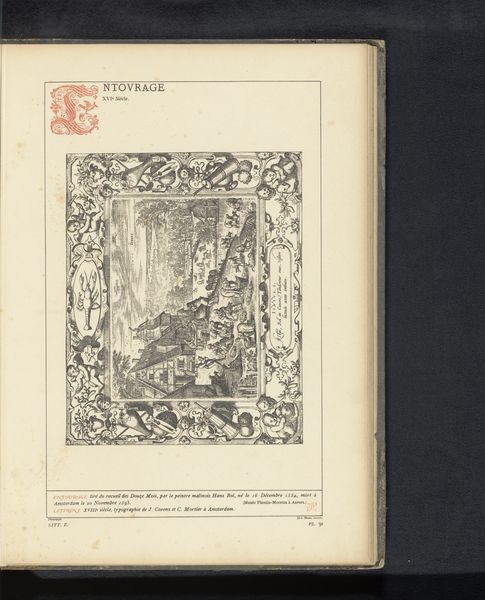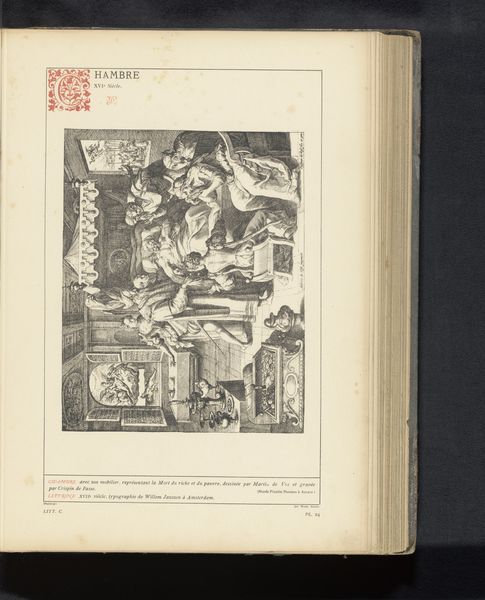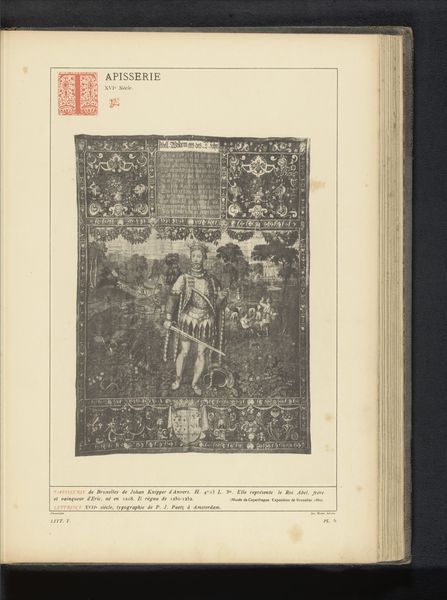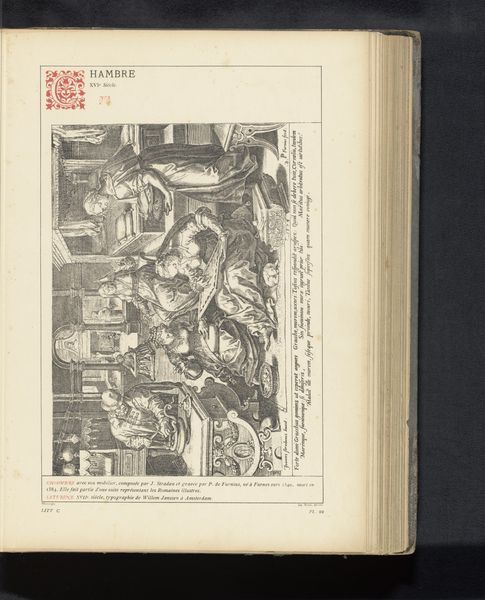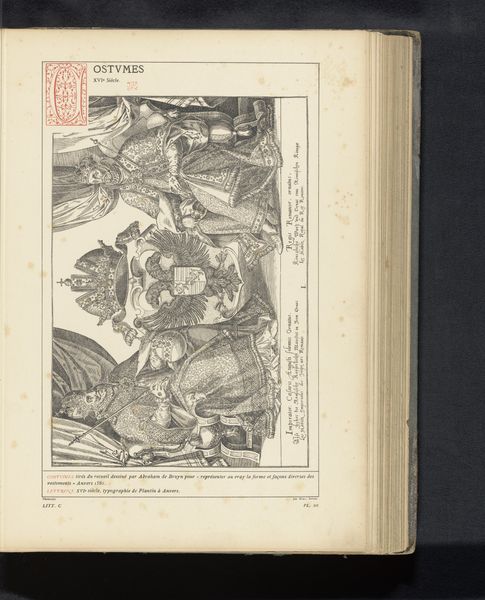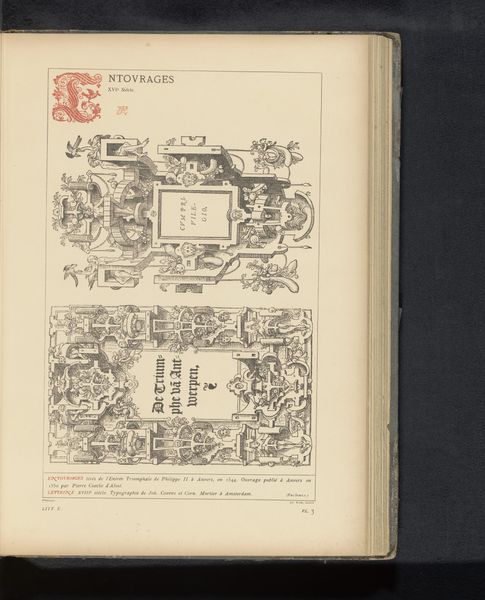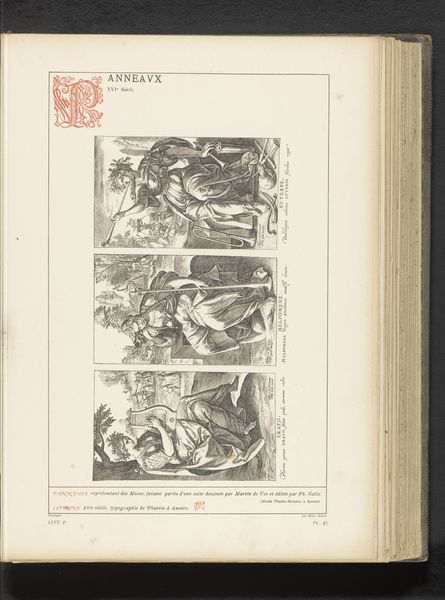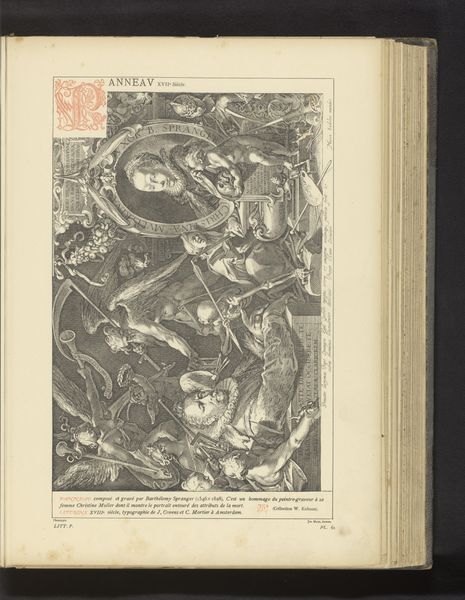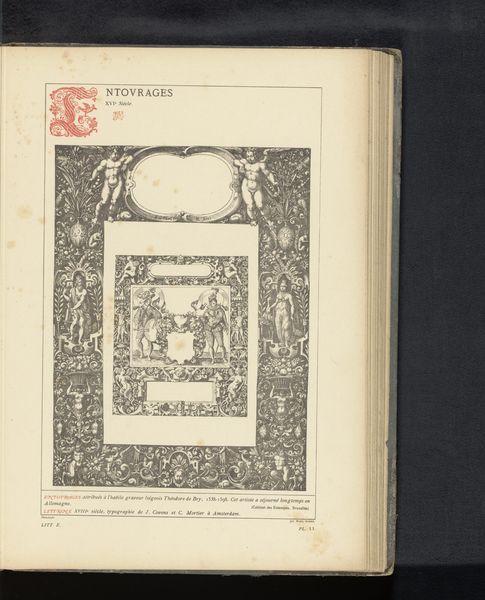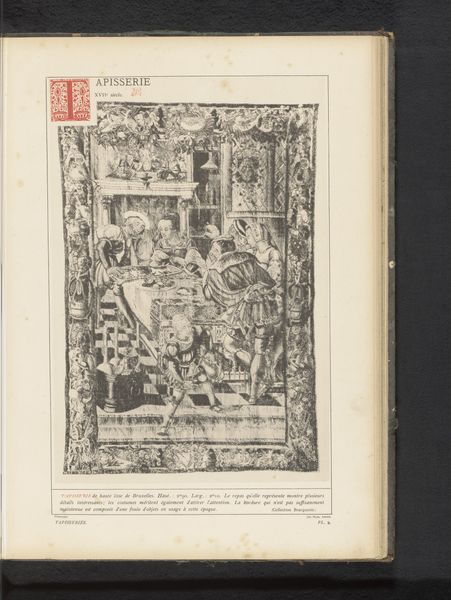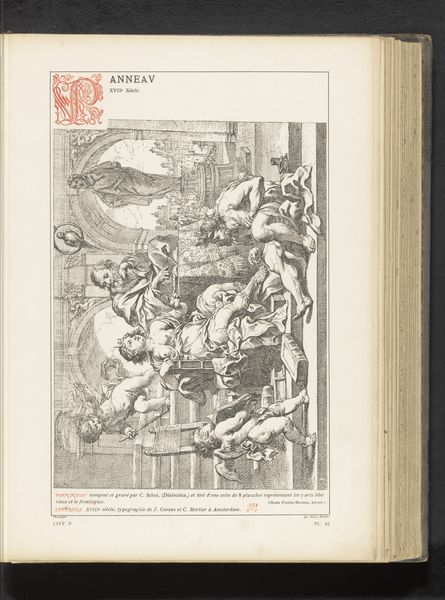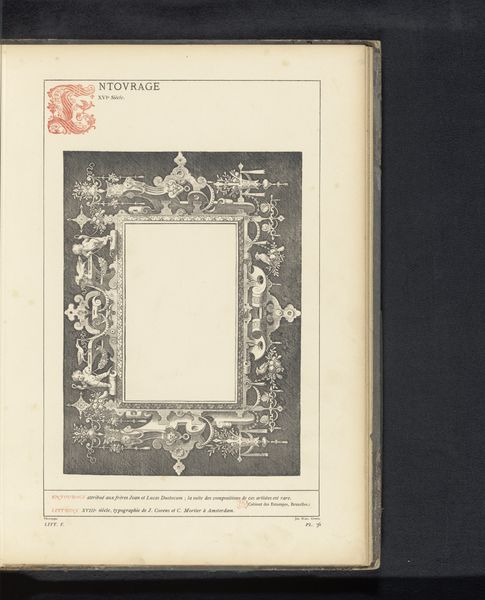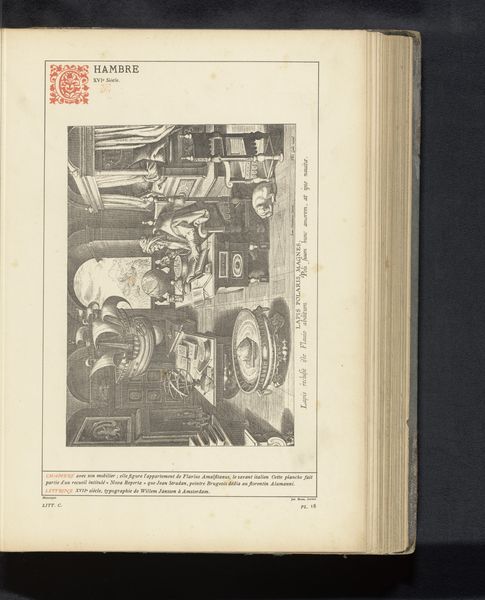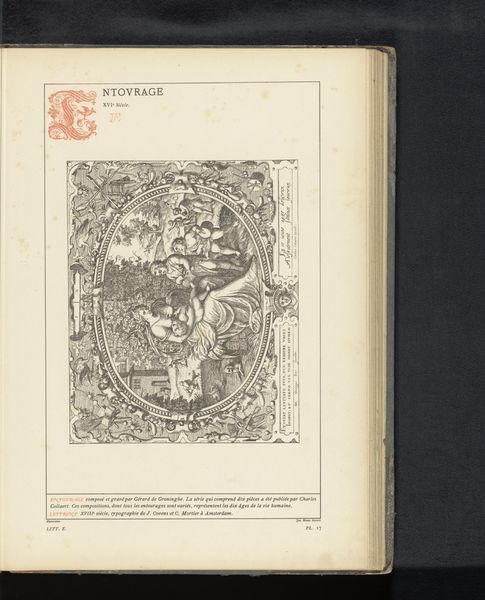
Reproductie van een prent van een triomfwagen door Adriaan Collaert naar Maerten de Vos before 1880
0:00
0:00
print, engraving
#
allegory
# print
#
11_renaissance
#
history-painting
#
engraving
Dimensions: height 219 mm, width 296 mm
Copyright: Rijks Museum: Open Domain
This reproduction of a print by Adriaan Collaert, after Maerten de Vos, probably dates to the late 16th century. It depicts a triumphal chariot, a motif with deep roots in classical antiquity, here repurposed to convey religious or political authority. Prints like these circulated widely across Europe. As a medium, they played a crucial role in disseminating ideas and images. Consider Antwerp, where this was made: it was a major center of print production, tied to broader European networks of trade and intellectual exchange. The image's visual codes and allegorical figures would have been readily understood by a learned audience familiar with classical and biblical sources. What's fascinating is how these traditions were being renegotiated amidst the religious and political upheavals of the Reformation. Is this a straightforward assertion of authority or a more nuanced commentary on power? To understand this print fully, we would need to delve into the history of printmaking, the biographies of the artists involved, and the political and religious context of the time. Art history is about understanding the complex interplay of these different factors.
Comments
No comments
Be the first to comment and join the conversation on the ultimate creative platform.
